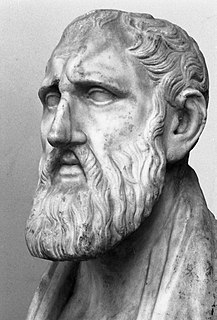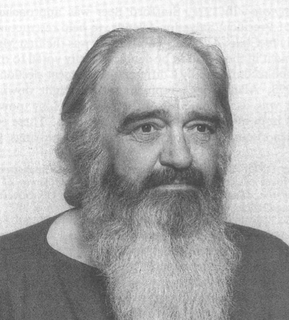A Quote by Terry Eagleton
To claim that science and religion pose different questions to the world is not to suggest that if the bones of Jesus were discovered in Palestine, the pope should get himself down to the dole queue as fast as possible. It is rather to claim that while faith, rather like love, must involve factual knowledge, it is not reducible to it.
Related Quotes
If I ask you who is the most famous scientist who ever lived, or the greatest scientist who ever lived you'll say either Einstein or Newton or something like that because their claims were supposed to apply universally. But the claim of somebody who is studying a particular feature of the evolutionary process like whether it's very fast or very slow, or occurs in steps and so on, that's not a universal claim, that's a rather specialised claim and so you can't claim to great fame and great success.
Our creationist detractors charge that evolution is an unproved and unprovable charade — a secular religion masquerading as science. They claim, above all, that evolution generates no predictions, never exposes itself to test, and therefore stands as dogma rather than disprovable science. This claim is nonsense.
The true contrast between science and religion is that science unites the world and makes it possible for people of widely differing backgrounds to work together and to cooperate. Religion, on the other hand, by its very claim to know “The Truth” through “revelation,” is inherently divisive and a creator of separatism and hostility.
Occam's razor suggests that, if some event is physically plausible, we don't need recourse to more extraordinary claims for its being. Surely the requirement of an all-powerful deity who somehow exists outside of our universe, or multiverse, while at the same time governing what goes on inside it, is one such claim. It should thus be a claim of last, rather than first, resort.
The remarkable insights that science affords us into the intelligible workings of the world cry out for an explanation more profound than that which itself can provide. Religion, if it is to take seriously its claim that the world is the creation of god, must be humble enough to learn from science what that world is actually like. The dialogue between them can only be mutually enriching.
Science has only two things to contribute to religion: an analysis of the evolutionary, cultural, and psychological basis for believing things that aren't true, and a scientific disproof of some of faith's claims (e.g., Adam and Eve, the Great Flood). Religion has nothing to contribute to science, and science is best off staying as far away from faith as possible. The "constructive dialogue" between science and faith is, in reality, a destructive monologue, with science making all the good points, tearing down religion in the process.
A popular feel for scientific endeavors should, if possible, be restored given the needs of the twenty-first century. This does not mean that every literature major should take a watered-down physics course or that a corporate lawyer should stay abreast of quantum mechanics. Rather, it means that an appreciation for the methods of science is a useful asset for a responsible citizenry. What science teaches us, very significantly, is the correlation between factual evidence and general theories, something well illustrated in Einstein's life.
You may claim to love Jesus but your life proves you are still walking in darkness—confused, befuddled and foggy! When you are truly in love with Jesus, conversing with Him, He turns up the light. There is no darkness at all in His presence. The worst possible darkness to mankind is not in the hearts of God-hating Communist leaders or Christ-hating atheists. It is, rather, the horrible darkness that blinds so-called Christians who refuse to walk in the light.




































